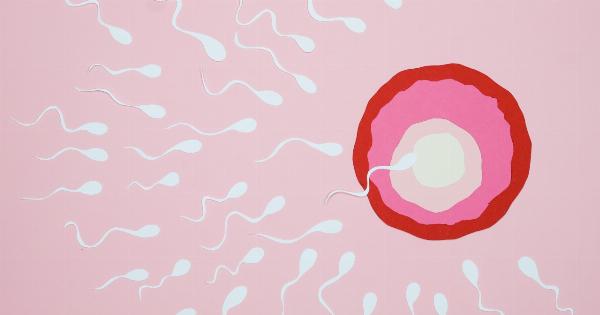The decision to use a sperm donor is a personal one, and for many couples struggling with infertility, using a donor has become an increasingly popular option.
While the use of a sperm donor can provide a viable means of creating a family, there are potential risks and considerations that need to be weighed before making a final decision.
Risk of Infection
Using a sperm donor can potentially expose the recipient to sexually transmitted infections.
Donor sperm is screened and tested for infectious diseases such as HIV, hepatitis B and C, and syphilis, but there is a small possibility of transmitting an infection. However, using a reputable and accredited sperm bank can greatly minimize this risk, as they must adhere to strict screening and testing protocols.
Diagnostic Errors
While sperm banks screen and test donors before accepting their sperm for storage, errors can occur, and viruses or genetic disorders could be missed.
It’s important for potential recipients to thoroughly research and choose a reputable and accredited sperm bank, which is subject to close regulatory oversight.
Genetic Risks
Another potential risk of using a sperm donor is the transmission of genetic diseases or disorders.
Even with comprehensive screening and evaluation, donor sperm can still contain genetic mutations that might cause genetic diseases or specific genetic disorders that run in the family. It’s crucial for potential recipients to undergo genetic testing to assess their own risk factors and exclude any specific genetic diseases from the donor’s health history.
Disclosure Issues
One of the main ethical issues related to using a sperm donor is the disclosure of the donor’s identity to the child born as a result of the donation.
It is crucial for couples to decide on the level of disclosure they are comfortable with and consider the impact it might have on their child. While anonymous donation is still possible, many countries have introduced new laws that could require the donor to be identified if the child wishes to learn more about their genetic heritage later in life.
Psychological Considerations
The use of a sperm donor could have psychological consequences for the parents, the child, and their wider family.
The parents might experience feelings of loss or guilt, while the child could potentially face identity issues related to their genetic heritage. It’s vital for couples considering sperm donation to obtain counseling to better understand the potential psychological impact of this decision and how to best support their child’s emotional well-being.
Legal Risks
The use of a sperm donor also raises the potential for legal disputes, such as custody battles, child support, or inheritance rights.
It’s essential for potential recipients to consult with a family lawyer before proceeding with sperm donation to fully understand their legal rights and obligations in their jurisdiction.
Donor Availability
Another potential obstacle for couples considering using a sperm donor is availability. In many countries, the demand for donor sperm has outstripped supply, and there may be long waiting lists at sperm banks.
Additionally, some donors might specify specific criteria that must be met for his sperm to be used, which could limit the pool of available donors even further.
Financial Considerations
The cost of using a sperm donor could also prove a barrier for some couples. Sperm donation is not usually covered by health insurance, and costs can vary depending on the sperm bank’s storage and testing procedures.
Also, couples may need multiple cycles of in vitro fertilization to conceive, which can significantly increase the overall cost.
Conclusion
The use of a sperm donor can provide a viable option for couples struggling with infertility and those wishing to create a family.
However, potential risks such as infection, genetic diseases, legal disputes, and psychological considerations need to be considered carefully before making a final decision. It’s important for individuals to work closely with their doctors, counselors, and fertility specialists to choose the best course of action that meets their health, emotional, and legal needs.






























